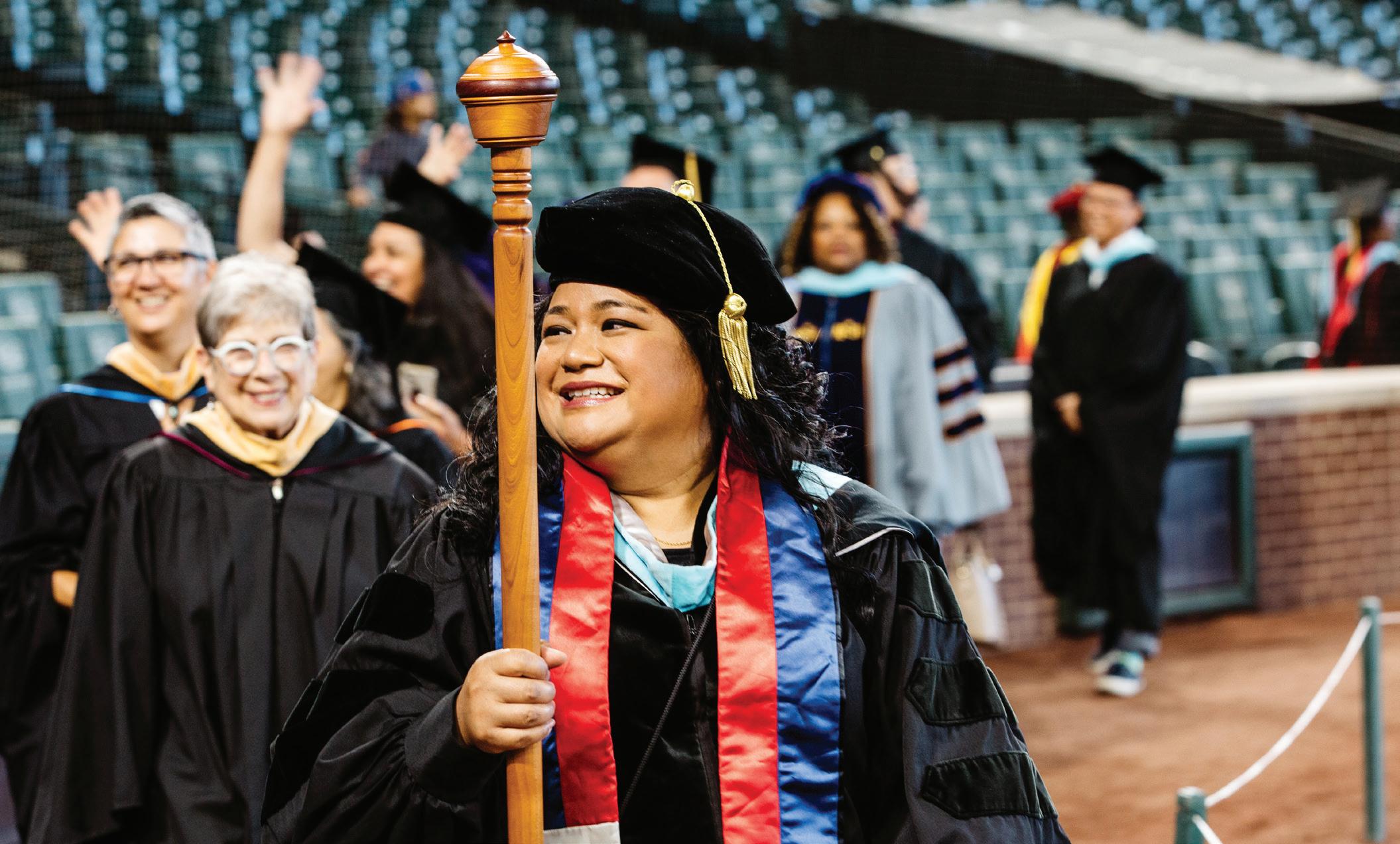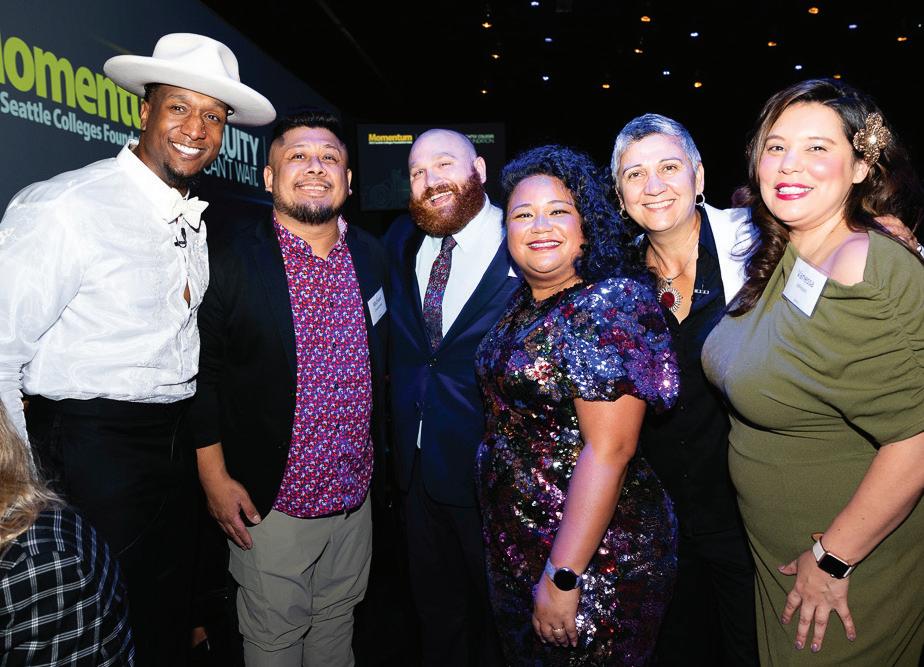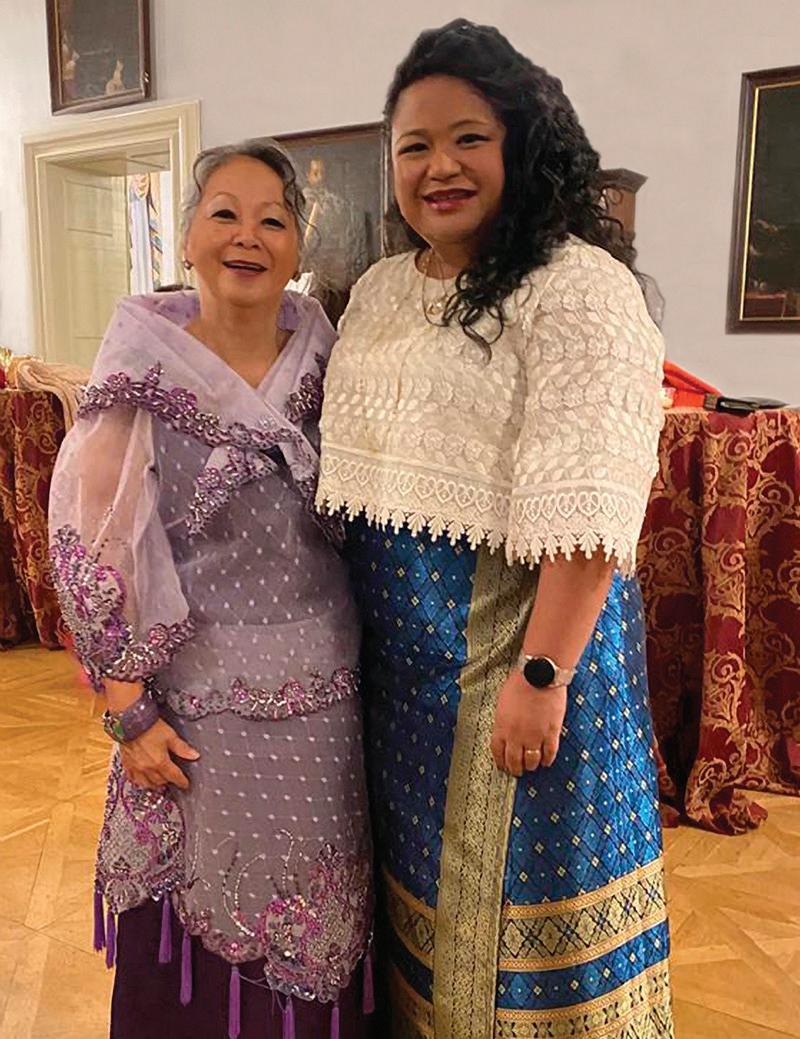

Q&A with Dr. Rosie Rimando-Chareunsap
Dr. Rosie Rimando-Chareunsap was named chancellor of the Seattle Colleges in August 2023, following a national search. Her career with the Colleges reaches back more than twenty years, including as president of South Seattle College starting in 2018. Among her degrees are an Ed.D. from Washington State University and an M.P.A. from the University of Washington. In 2019, the Aspen Institute selected her for its prestigious Presidential Fellows Program, and in 2023 the international Filipina Women’s Network named her one of the world’s most influential Filipinas, an honor she accepted in the Fall in the Czech capital, Prague
You’ve been part of the Seattle colleges for more than two decades. How did it all start?
My very first job at the Colleges was at South. It was a part-time summer gig as a TA in a program called Upward Bound, a federally-funded TRiO program, that helps high schoolers who would be the first in their families to attend college prepare
and plan for higher education. I was getting my teaching certification at the time, and so it was a great opportunity to gain real-world experience. Immediately, I loved it. It felt like the perfect match for my personal values and my professional goals, and when it blossomed into an opportunity to work in TRiO programs full-time, I jumped at it. I’ve since held a variety of different positions, but
I’ve never lost my love of working with students, helping them progress, and experiencing their excitement and their family’s pride when they reach their goals.
As you reflect back, when did your passion for education and equity first ignite?
I attended a well-resourced high school on Bainbridge Island. It was a positive academic experience, for the most part, even though I wasn’t like most of the other kids, who were white and often fairly affluent. My family relocated to Kitsap County because my father was in the Navy and stationed at a nearby base. My school experience wasn’t the same as many of my brilliant Black and Brown classmates. I was judged as “college-bound” while my peers were not because of systemic bias that “tracked” them at an early age into a non-college pathway. At this notable high school that prided itself on sending students to college, my friends weren’t encouraged in that dream. I didn’t have the framework to understand all of it or the language to articulate what I was seeing when I was 16, 17, 18, but I gained it later. Now confronting that kind of systemic injustice and suppressed potential is what fires me every day.
At some point you moved into a more administrative role. How did that come about?
Well, reluctantly, at first. I was hesitant to step further away from direct student service into

leadership, but was also wanting to have greater impact on our practices and eventually on our systems. As I gained more experience, I started being pulled into mentoring and supervisory roles for other staff, and I found that I loved this work, too. It felt like a way to really amplify my impact, and — in a sense — be a teacher in another context, developing and supporting people that I worked with. I found tremendous satisfaction in the relationships I was able to form, supporting colleagues in their goals, coaching them on further degrees they might want to pursue, helping them move up in their careers. Over time, that led to leadership roles in initiatives supporting Thirteenth Year Promise (South’s forerunner of today’s Seattle Promise program), AANAPISI (the Asian American and Native American Pacific Islander-serving Institutions Program), and later being chosen as South president.
Now you’ve become chancellor for all three Seattle Colleges. How do you think your past experiences at South equip you for success?
I think the many roles I played at South, and across the Colleges (because there’s always been a lot of cross-campus collaboration), probably give me some added contextualized understanding of our instructors and staff. Their work isn’t abstract to me. Oftentimes, I’ve done it or partnered with folks in these roles, and I understand the effort and resources it takes to do our work well. I also think the depth and extent of relationships I’ve built is a help, too. I’m a familiar face, and I hope a trusted one. I enjoy the moments on campuses or in meetings when I run into somebody that I worked with back when, and take a minute to chat and reminisce. I love those moments.
You’re the first woman of color to serve as Chancellor of Seattle Colleges. What significance do you see in that?
I feel a deep responsibility and honor in this distinction. I have been preceded by another woman in this role, Jill Wakefield, and we’ve had men of color as chancellors, including the legendary Charles Mitchell, who was also a UW football great. So I feel like I’m continuing that
Seattle Colleges legacy — at least in terms of representative leadership. I don’t know about the athletic aspect, but I am at least glad to represent WSU Cougars as well!
But, yes, I of course have a distinct perspective, based not only on my experiences as a Filipino American woman, but as someone leading this institution at a very particular time, when work and higher education are both undergoing major upheavals. How will AI, robotics, shifting demographics, climate shocks, political volatility, and our region’s increasing unaffordability affect what we do at the Colleges? It’s difficult to say as yet, especially since these things intersect and interact. But this much is certain: however things play out, I will fight to ensure that students from historically excluded communities and families of color have every opportunity to flourish.
You mentioned AI and robotics. Do you have thoughts yet about what they mean for community college education?
Well, with AI, we’re still discovering what this means for us. But what’s already clear is that this and other technologies are driving a pace of change that we’ve never before seen as a city or a country. And, if you’re complacent about your skills, you will be left behind. It’s the lifelong learners who will flourish, and community colleges can be — and should be — the place where folks from every walk of life, of every age, of every income level, will periodically come back and reboot their skillset. I predict a surge in demand for certificate and continuing education courses, and we need to be ready for that.
How are the colleges springing back from the pandemic?
Like community colleges across the country — and higher ed in general — we lost a lot of students in the pandemic. But now they’re steadily returning, helped in part by great programs like Seattle Promise and the growing popularity of the trades. I believe it is about the experience we provide for students. So we’re upbeat.

Any stand-out great experiences as chancellor?
So many! But if forced to pick, I’d probably choose the reception that Teresita Bataloya (a Seattle Colleges Trustee) and others organized for me at Seattle’s Filipino Community Center shortly after I was named the permanent chancellor. My immediate family was there, my cousins, my extended cousins, my cousins-in-law, my friends from college, people I’ve worked with at the Colleges and in the city, leaders from other parts of the Asian American community, legislators I knew, legislators I didn’t. Even Mayor Harrell was there.
I remember standing at the podium and having the strange sensation of worlds colliding, of different lives I lead in different spaces coming together. And I thought, wow. All of this love. All this support. It matters to so many people that someone like me has this opportunity. I’d better get it right!
